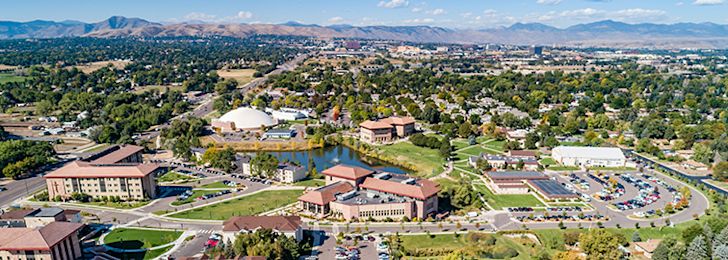
Statement on the Coronavirus
Colorado Christian University understands that members of the University community may be concerned about COVID-19 and how it may affect them. At this time, there are no confirmed cases nor suspected cases of COVID-19 on campus. The risk of COVID-19 for Coloradans is low at this time.
However, in order to safeguard the health of the University community, Colorado Christian University remains in close communication with the Colorado Department of Public Health and Environment (CDPHE).
Should there are any suspected cases on campus, the CDPHE will provide directions to our on-campus health care providers and University administrators on how to proceed. In the event that one of our staff nurses has a cause for concern regarding a patient, they will immediately direct the patient to their primary care physician and contact the CDPHE for further instructions.
Know the Facts
- To become sick, someone has to be “exposed” to the virus. CDC defines exposure as being within approximately 6 feet (2 meters) of someone with a confirmed infection for a prolonged period of time.
- Person-to-person spread is thought to occur mainly through respiratory droplets produced when an infected person coughs or sneezes, similar to how influenza and other respiratory viruses spread. However, even that is not a guarantee that someone will become sick with the virus.
- For these reasons, people at higher risk of becoming sick are:
- People who have traveled to China within the last two weeks.
- People who have had close contact with someone who was confirmed to have the novel coronavirus.
- Like any other virus, no identity, community, ethnic, or racial group in Colorado is more at risk for getting or spreading COVID-19.
- State and local public health are working together, following federal guidance, to assess Colorado travelers returning from China to determine the need for monitoring, restriction of movement, quarantine, or other action to prevent the spread of the virus.
Risk from other viruses is greater
- There are many kinds of coronaviruses, like the common cold, currently circulating in Colorado and the U.S. that cause respiratory illness. While these viruses may also be called “coronaviruses,” they are not COVID-19.
- There also are many other kinds of respiratory illnesses (such as flu) circulating right now.
- People are at much greater risk of getting the flu than the COVID-19. It’s not too late to get the flu vaccine.
Symptoms and severity
- Symptoms of respiratory viruses, including the novel coronavirus, include fever, cough, and shortness of breath.
- Any of these illnesses can be severe and require hospitalization, but most individuals recover by resting, drinking plenty of liquids, and taking pain and fever-reducing medications.
- If you did not have a high risk of exposure, it is very unlikely you have novel coronavirus. But if you are ill and concerned, contact your health care provider.
Protecting yourself from COVID-19 and other respiratory viruses
If you are healthy:
- Continue your normal daily routine. This means you can continue to participate in public gathering such as work, school, or social activities.
- Get your flu shot, and stay up-to-date on other routine childhood and adult immunizations.
- Wash your hands with soap and water or, at minimum, use an alcohol-based hand rub, which may be less effective than soap and water.
- Avoid close contact with anyone with cold or flu-like symptoms.
- Clean and disinfect frequently touched objects and surfaces such as desks, doorknobs, handrails, etc.
If you are sick:
- Stay home
- Cover coughs and sneezes with a tissue or your inner elbow shirt sleeve.
- Wash your hands with soap and water or, at minimum, alcohol-based hand rub, which may be less effective than soap and water.
- Avoid touching your eyes, nose, and mouth.
- Avoid close contact with anyone else with cold or flu-like symptoms.
- Get your flu shot, and stay up-to-date on other routine childhood and adult immunizations.
- Clean and disinfect frequently touched objects and surfaces such as desks, doorknobs, handrails, etc.
COVID-19 in the community
- It’s important to remember that the risk to most Coloradans from COVID-19 is low. If an individual does not have a high risk of exposure, it is very unlikely they have novel coronavirus. But if they are ill and concerned, they should contact a health care provider.
- Colorado state and local public health are working together, following federal guidance, to assess Colorado travelers returning from China to determine the need for monitoring, restriction of movement, quarantine, or other action to prevent the spread of the virus.
